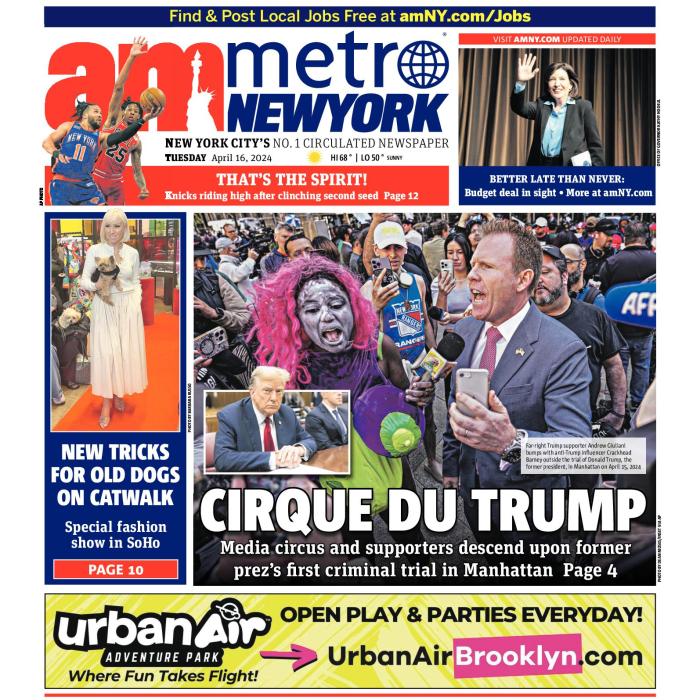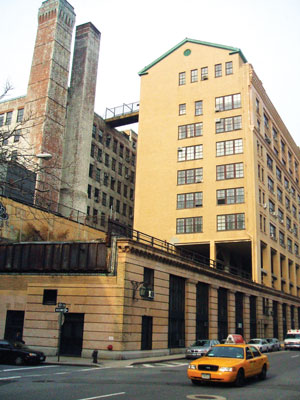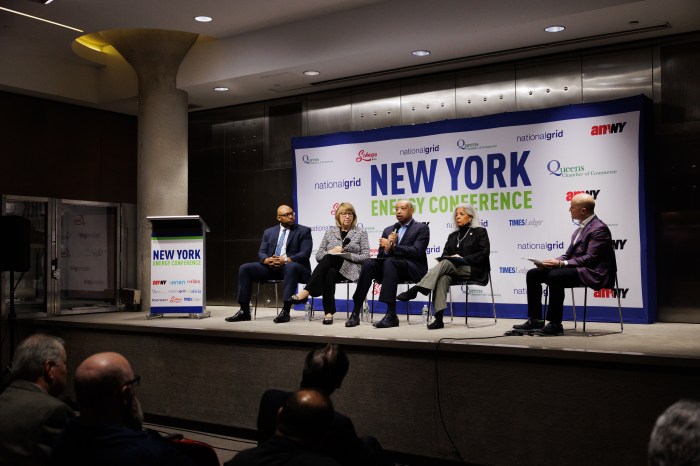BY CLARISSA-JAN LIM | Hurricane Sandy wreaked havoc on Westbeth’s basement space and many of the artists’ works and equipment housed there, but these artists now face another conundrum: the possibility of their former workspaces being rented out to commercial tenants, effectively denying their return to the very spaces they toiled and stored their work in for decades.
The likely change came as a shock to some Westbeth tenants who had rented spaces in the basement before it was deluged by Sandy’s floodwaters, damages from which required a year and a half and $5 million in repairs.
Anthony Moreno, a jazz musician who has practiced drums in his Westbeth basement studio for the past 42 years, said that the artists complex’s management, run by the place’s board of directors, had initially promised studio artists that they would be able to return to the basement.
“I received a personal letter from Carmi Bee [president of the Westbeth board of directors] saying everything was on schedule, things should be happening. And then for a year, I didn’t hear back,” said Moreno.
Then, at a recent meeting of Westbeth’s Artists Residents Council, Moreno learned that management had hired Denham Wolf Real Estate Services to study uses for the basement space and locate potential tenants.
However, Steve Neil, Westbeth’s managing executive director, denied that the artists had ever been promised anything. As soon as the storm hit, management informed the artists that they might not be getting back their basement spaces, he said.
Denham Wolf is tasked with finding potential tenants for close to 70,000 square feet of space in the building — 60,000 square feet of which in the basement (about three-quarters of the entire floor) and 10,000 square feet on the first and second floors.
In addition, according to Moreno, the handful of studios that were not affected by the flood and are still in use have seen their leases reduced from one, two, or three years long to month-to-month leases.
The basement space has always been a commercial property, rented out to artists for storage space. It also housed, among other things, the boiler room and a sculpture studio. However, according to Neil, artists and musicians had also been using the space for rehearsals and late-night powwows, without authorization, plus a lack of decent lighting or ventilation for such functions.
“When we cleared out after the flood, we saw exactly what had been going on down there,” Neil said. “Many of the little rooms and rental spaces had locked doors on them. It didn’t seem to be that urgent a problem at that time, because we didn’t realize the extent of the use down there. It turns out that there were a number of people who turned what were supposed to be storage spaces to full-blown rehearsal rooms without adequate ventilation, without adequate signage. It was not supposed to be a space used for parties or after-hour gatherings. As soon as we found out we put a stop to it.”
John Silver, a painter and Westbeth resident, said that the basement was intended to be rented out to commercial tenants to help supplement the rent that residents paid. Renting out the space to commercial tenants, he said, “in a way, is what should be done,” since it allows Westbeth to keep its residents’ rent low.
But the alternative solution of creating an endowment fund has been brought up many times to management, according to Silver, yet no action has been taken.
“If you had an endowment, you can use it for the purpose of paying the rent on artists’ studio spaces,” said Silver, who is also on the Westbeth Preservation Committee.
Moreno said he suspects the move is part of management’s trying to cash in on the rapid gentrification and exorbitant real estate prices of the nearby Meatpacking District.
“The last building standing in that area that is worth an enormous amount of real estate is Westbeth,” he said.
However, Neil said the reassessment of the basement’s use is a fulfillment of Westbeth’s mission to provide affordable housing for artists in all disciplines and to be a center for the arts.
“We’re a responsible, nonprofit organization and we need to evaluate our resources at regular intervals,” he explained. “We’re trying to assess the best use of the basement. We haven’t made up our minds — nothing has been rented yet.”
For his part, Moreno said that, in his many attempts to reach out to management, he has gotten little or no response.
“They say, ‘Maybe, maybe, maybe,’ but everyone is just dragging their heels,” he said. “It’s just been going on and on and on, and you reach a point where you’re reaching out to the media and the politicians, and you realize it’s consuming every day of your life. And all of a sudden, you stop being an artist, and all you’re doing is trying to deal with all the paperwork and all the research needed, just to fight for your return [to your studio]. And it’s been a hard one, it’s been a real hard one.”

















